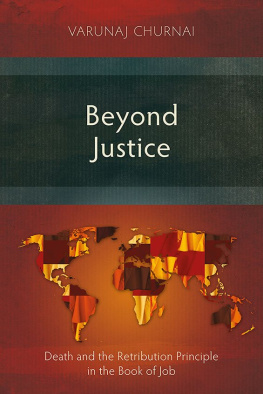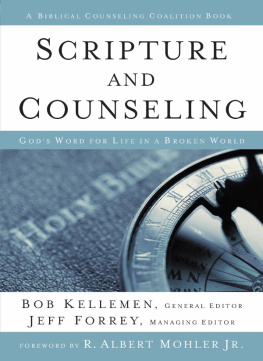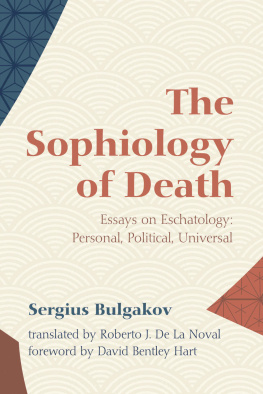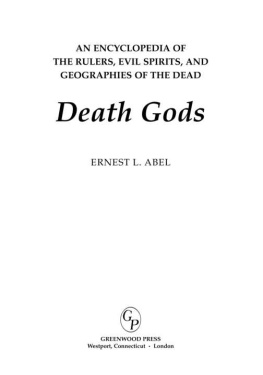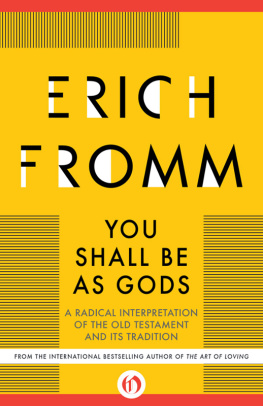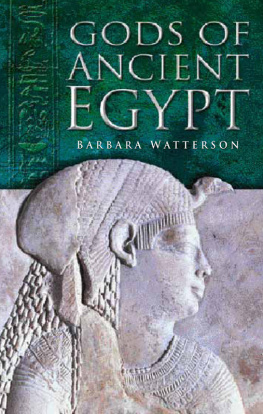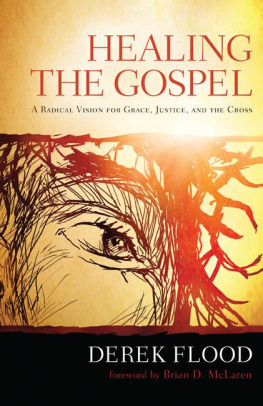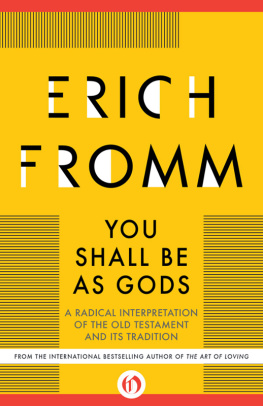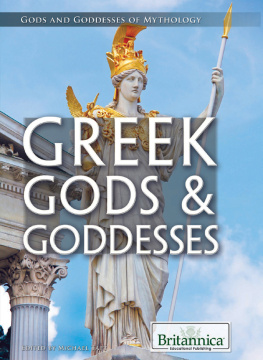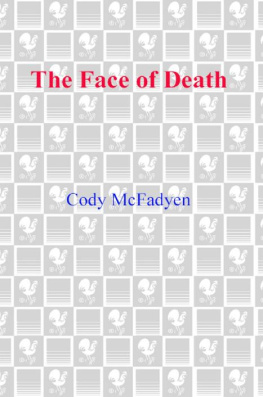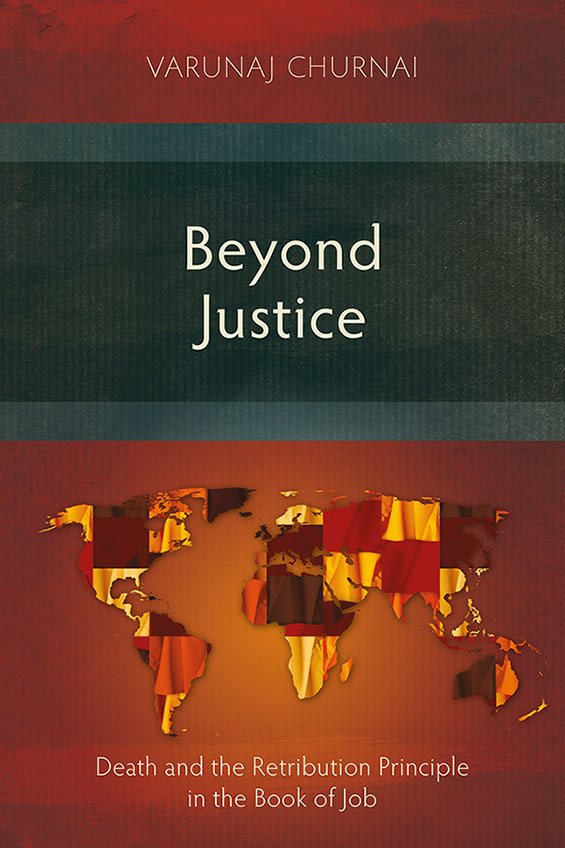In what the author originally wrote as her doctoral dissertation submitted and approved ten years ago at Concordia Seminary, MO, USA, she struggled with one of the hardest and most important issues of biblical theology, the question of our moral accountability, and one of the toughest and longest books of the Hebrew Old Testament Job. Right in Job 1 God himself testifies to Jobs impeccable moral quality. Why did God allow Job to suffer so terribly? Satan is introduced as Gods agent here. Hence some modern scholars have sought to account for this moral dilemma by invoking the dualistic mythological ideas prevalent in the ancient Near East. Dr Churnai competently combats this modern trend, advising us not to read the book of Job in terms of the too narrowly focused theology of divine retribution. She argues that the other face of God, his grace, is not to be lost sight of. An engaging, important Asian contribution to Old Testament scholarship.
Takamitsu Muraoka, PhD
Professor Emeritus, Biblical Philology, Leiden University, Netherlands
British Academy, 2017 Burkitt Medal for Hebrew Bible Studies
The book of Job is the masterpiece of Scripture, whether one speaks of its profundity, its poetic and literary beauty, its boldness and intensity of struggle, or its resilience of faith. There may be similar outbursts in the psalms or glimpses in the prophets, but not the depth and the passion of the book of Job.
At issue are attempts by Jobs friends and by Job to make sense of Jobs crisis of life and faith. By inherited wisdom the friends appeal to divine justice, which imputes guilt to Job. Rejecting any guilt, Job paints divine governance as arbitrary and unjust. The impasse lies between the bankruptcy of retribution, and Jobs terrifying vulnerability before a capricious God. Only Gods self-revelation moves beyond the impasse.
Dr Churnai has presented an insightful, masterful study of a book that both tantalizes and defies platitudes. By extension, she gives also a word of hope to all who wrestle with similar issues.
Henry Rowold, DTh
International Research Emeritus Professor,
Concordia Seminary, St Louis, MO, USA
Questions of theodicy have haunted every people and tribe: how do we explain and master the injustice and inexplicability that all experience in one or another facet of life, especially in death? Therefore, Job has attracted and fascinated readers around the world throughout the centuries. With attention directed to the role of death in Jobs anguished struggle for justification, Churnai uses a literary approach that concentrates on the structure of the book to explore its meaning. With penetrating insight and sensitivity to the books literary structures, she shifts the focus away from the principles of retributive justice that hold Jobs friends reality together and perceives that Job concludes that trust in the Creators person must ground personal interpretation of reality. Churnai explains how this dialogue over retribution versus trust shapes the dialogues between Job and his friends, and Job and God. This excellent study is a must read not only for exegetes but also for systematicians and those dedicated to pastoral care.
Rev Robert A. Kolb, PhD
Professor of Systematic Theology,
Concordia Seminary, St Louis, MO, USA
Many interpreters, and most casual readers, treat Job as if it were discussing suffering in a very generic sense. What makes Dr Churnais treatment of Job distinctive is that she situates the book firmly within the tradition of Israelite wisdom literature and properly understands it as a reflection on the problems created by an overly simplistic application of the retribution principle. Dr Churnais insightful reading not only helps to explain why the book unfolds as it does but provides an important insight into the theological debates that shaped ancient Israels wisdom theology.
David L. Adams, PhD
Associate Professor of Exegetical Theology,
Concordia Seminary, St Louis, MO, USA
In her close, literary reading of Job, Varunaj Churnai grapples with deep theology (e.g. the nature of God) and seemingly contradictory passages (e.g. Jobs several views of death), which she does by privileging the progress of the narrative over Ancient Near East mythology and even more general, OT views of retribution. Using the problem of death as entre to a consideration of theodicy specifically, the retribution principle she argues persuasively that Job never loses faith in God, and that finally Job is brought by Yahweh himself to see that his own relationship with God must be based entirely on trust and faith: It is not so much that Job has passed the test but that he comes to recognize that the retribution principle has failed.... Job moves from the debate about Gods justice to the recognition that God transcends justice as being understood in human terms (180, 187). Such insight is relevant in all contexts, not only in Thailand, but also around the world. Well done, indeed!
Rev James W. Voelz, PhD
Dr Jack Dean Kingsbury Professor of New Testament Theology,
Concordia Seminary, St Louis, MO, USA
Beyond Justice
Death and the Retribution Principle in the Book of Job
Varunaj Churnai
2018 Varunaj Churnai
Published 2018 by Langham Monographs
An imprint of Langham Publishing
Langham Partnership
PO Box 296, Carlisle, Cumbria CA3 9WZ, UK
www.langham.org
ISBNs:
978-1-78368-455-7 Print
978-1-78368-456-4 ePub
978-1-78368-457-1 Mobi
978-1-78368-458-8 PDF
Varunaj Churani has asserted her right under the Copyright, Designs and Patents Act, 1988 to be identified as the Author of this work.
All rights reserved. No part of this publication may be reproduced, stored in a retrieval system or transmitted, in any form or by any means, electronic, mechanical, photocopying, recording or otherwise, without the prior written permission of the publisher or the Copyright Licensing Agency.
Scripture quotations are from The Holy Bible, English Standard Version (ESV), copyright 2001 by Crossway, a publishing ministry of Good News Publishers. Used by permission. All rights reserved.
British Library Cataloguing-in-Publication Data
A catalogue record for this book is available from the British Library
ISBN: 978-1-78368-455-7
Cover & Book Design: projectluz.com
Langham Partnership actively supports theological dialogue and an authors right to publish but does not necessarily endorse the views and opinions set forth here or in works referenced within this publication, nor can we guarantee technical and grammatical correctness. Langham Partnership does not accept any responsibility or liability to persons or property as a consequence of the reading, use or interpretation of its published content.
Converted to eBook by EasyEPUB
To the memory of my father, Kasem R. Prapaporn, whose death drew me near to God, and to my beloved husband, Kitsanapong Churnai, and our cherished children, Sky and Micah
42:5
Abstract
In recent decades, scholars have tended to interpret what Job says about death either as part of the broader reading of the Old Testament about death, or by imposing ancient Near Eastern mythological concepts upon the text of Job, read apart from the Old Testaments wisdom tradition. This book attempts to redress the latter trend of interpretation by articulating that what Job says about death is related to Jobs struggle to understand his relationship to God in relation to a theology that asserts that an individuals relationship to God is rooted in his own personal righteousness. It provides also a theological explanation of how the concept of death in Job relates to Jobs broader understanding of the relationship of the individual to God. The book proposes that what the book says about death must be understood in the light of the relationship between God and man that emerges from the books re-evaluation and ultimate rejection of the theology of retribution.

